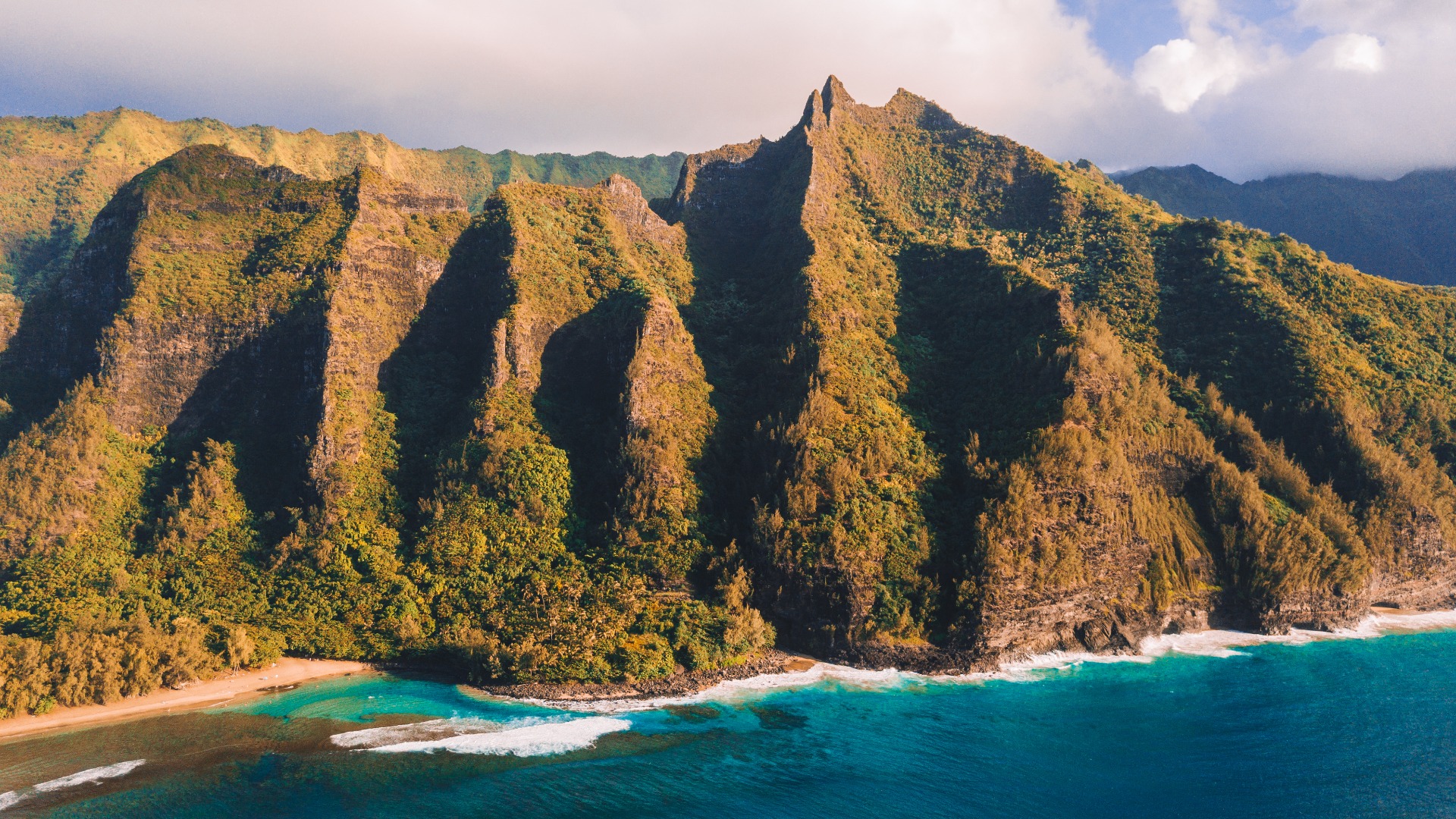
New Fee Proposed For Visiting Hawaii

Tourists who want to see Hawaii's most fragile ecosystems will now have to pay a new tax.
Hawaii is one of the most biologically diverse places on the planet, with about 25,000 different species calling it home. Its stunning scenery is a major appeal for holidaymakers. But, the natural beauty of the islands is being eroded by the constant stream of visitors.
Now, the state of Hawaii is thinking of charging yearly fees to visitors who want to use its national forests and trails, as almost nine million people flock to this tourist hotspot every year, and the island’s infrastructure can't handle the influx. Boats running straight into the ground on coral reefs cause damage, a deadly fungal epidemic in the native woodland and in the water, swimmers are bullying dolphins, turtles and other marine wildlife.
The islands' pristine natural world is worth protecting, but doing so requires considerable resources. With this in mind, the local administration is now soliciting funds from visitors to cover the cost.
Lawmakers in Hawaii are thinking of passing a bill that would charge visitors to the state a fee to use the public parks and trails. However, they have not yet reached a consensus on the amount of the fee that they would ask.
“All I want to do, honestly, is to make travellers accountable and have the capacity to help pay for the impact that they have.
“We get between nine and 10 million visitors a year [but] we only have 1.4 million people living here. Those 10 million travellers should be helping us sustain our environment”, commented the state's Democratic Governor, Josh Green.
Last year, Green ran on an agenda that included charging all visitors to the state €46.
At the same time, lawmakers are opposed to this because they believe it undermines the right to travel freely guaranteed by the US Constitution, as these proposals would be unprecedented at the federal level.
On the other hand, Hawaii's government is following the lead of other popular tourist destinations worldwide, such as Venice, Italy, and the Galapagos Islands of Ecuador, which have instituted comparable taxes and levies for visitors. For example, to help maintain a vast marine sanctuary and encourage ecotourism, the Pacific island country of Palau now charges entering overseas tourists $100.
A measure presently making its way through the state legislature would compel non-residents to purchase a yearly licence before entering any forest, park, trail or other natural area inside the state territory. Anybody above the age of 15 years old would be eligible to pay the aforementioned licence. Infringers would have to pay a civil fine, albeit no punishments would be levied for the first five years while the law is being educated and implemented. Those who already have a valid driver's licence or state ID from Hawaii would not have to pay the new tax.
State officials are still discussing the scope and methodology of the measure, calling it "a work in progress." The charge was originally proposed to be $50 in the Senate's version of the bill. This Monday, however, the House Finance Committee revised the bill to strike the monetary sum.
Committee Member Dee Morikawa has proposed that the state compile a list of areas where licences would be mandatory.
The state's head of the Board of Land and Natural Resources, Dawn Chang, told the committee that since Hawaii's beaches are accessible to the public, individuals are unlikely to be cited there, albeit this is still something that has to be ironed out.
Green has stated his willingness to back the Legislature's approach and his openness to varying opinions on where the charge should be levied.
Hawaii's Democratic House Tourism Committee Chair Sean Quinlan explains that shifting tourist preferences are a key factor in the state's renewed marketing efforts. He claimed that during the last decade, the number of golf rounds played by tourists each day has dropped by 30% but the number of hikes taken has climbed by 50%. In addition, people are now actively searching out for remote places on the island after seeing a link to them on social media. He claims that the state lacks the resources to properly oversee all of these sites.
Nonetheless, some of the most well-known parks and trails in the state do collect entrance fees.
Proponents of the proposed levy claim that everywhere in the United States, tourists would be subjected to a comparable tax. One example is the Alaskan tax.
If everything goes as planned, the state's Department of Land and Natural Resources will administer the "visitor impact fee special fund," where the money from the licencing fees will be deposited. This would provide stable funding for conservation in the national budget.
Hawaii has significant conservation requirements. The Ohia tree, endemic to Hawaii and the dominant canopy tree in natural wet forests, is dying from a fungal disease brought in from other countries. To a certain extent, conservation efforts are a direct result of visitor demand. Marine mammals are often harassed, including dolphins, turtles, and Hawaiian monk seals. Invasive organisms may be brought into a forest by hikers who don't realise the danger they pose. Reefs are already under pressure from invasive algae and coral bleaching, and snorkellers and boats only exacerbate the problem.
According to a research published in 2019 by Conservation International, a non-profit environmental organisation, the gap between the amount spent on conservation by the federal government, state and local governments, and private citizens in Hawaii, and the amount needed, was $535 million.
Nonetheless, the majority of visitors to Hawaii agree that $50 is too much to pay for a nature walk.
Source: euronews.com








